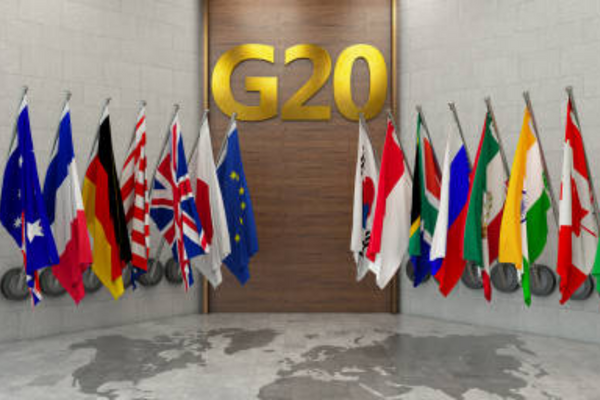The economic challenges faced by countries across the world in the wake of the COVID-19 pandemic, compounded by the Ukraine conflict and rising interest rates, have led to macroeconomic insecurity, inflationary pressures, and rising debt burdens. The Global South, in particular, has been affected, with its efforts at promoting sustainable development hindered by debt burdens and trade imbalances. Amidst these challenges, India’s presidency of the G20 aims to advocate for reforms in multilateral development banks (MDBs) and innovative financing strategies to address these pressing global issues.
India has emerged relatively quickly from the pandemic with a V-shaped recovery and is one of the fastest-growing economies in the world. However, the varying impacts of crises on different countries have widened the gap between nations, posing challenges for a globally sustainable future. India is utilizing its G20 presidency to represent the voice and priorities of the Global South, pushing for an accelerated recovery through stronger collaboration between the Global North and South, multilateral system reform, and financing of climate and sustainable development actions.
A key focus of the global economic recovery discussions has been the need for reforming MDBs, including institutions like the World Bank and the International Monetary Fund (IMF), to effectively support post-pandemic economies and help them achieve the Sustainable Development Goals (SDGs). While these institutions were established to rehabilitate economies after World War II, their responses in recent years do not adequately reflect the realities of the 21st century.
India is taking on a leadership role in advocating for MDB reforms at various international forums, including G7 and G20 meetings. Prime Minister Narendra Modi, in collaboration with US President Joe Biden, has called for strengthening the multilateral system to address contemporary trends. This includes expanding the mandate of MDBs to cover transboundary issues and collective action against climate change.
In addition to advocating for MDB reforms, India is emphasizing the need for innovative and sustainable financing strategies to support smaller and poorer nations. The G20 is exploring strategies such as attracting private capital through incentives, reducing investment risks, and increasing access to sustainable finance through instruments like sovereign green bonds.
The Independent Experts Group Report on Strengthening Multilateral Development Banks proposes a strategy for MDBs that focuses on eradicating extreme poverty, promoting shared prosperity, and supporting global public goods. This includes tripling sustainable lending by 2030 and establishing new funding mechanisms for collaborations with investors.
By adopting recommendations from the G20 Capital Adequacy Frameworks report, there is potential to create additional lending capacity of $80 billion annually. Optimizing the use of callable capital, preferred creditor status, and introducing hybrid capital strategies can further enhance MDBs’ effectiveness.
Collaboration between MDBs and the private sector is a transformative opportunity. MDBs currently mobilize $0.6 of private capital for every dollar lent. India aims to double this ratio, resulting in additional financing for achieving the SDGs and climate goals.
India’s G20 presidency provides an opportunity to extend debt relief, accelerate technological transfers, and advocate for innovative financing mechanisms for the Global South. The theme “One Earth, One Family, One Future” encapsulates the call for collective action involving all stakeholders to address systemic challenges and achieve a sustainable global future.
